Voices of GoTo: In this series, we highlight the people that make flexible work, work: our employees! GoTo is a global company with more than 4,000 employees worldwide; these are their stories.
VP of Digital Marketing at GoTo, Chris Salazar, has always stayed ahead of the trends. “That’s why I’ve gravitated towards marketing and digital,” says Salazar, “because it’s ever-evolving and changing.” Salazar has made a footprint in the Bay Area tech space for the past twenty years, but his resume traces back to age seven. This Hispanic Heritage Month, we reflect on the origins of his work ethic and the importance of maintaining our cultural identity.
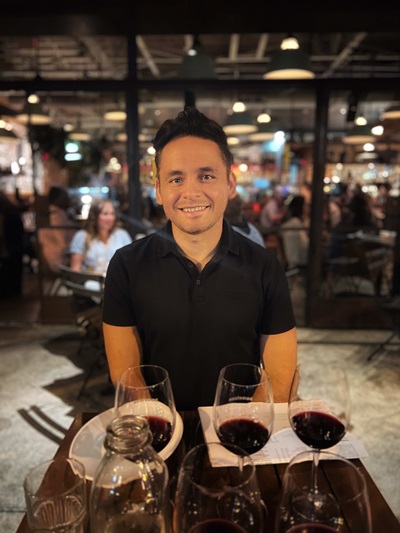
Chris, tell me about yourself and your history.
I was born in Albuquerque, New Mexico. My dad’s family had roots there for a long time. We moved to the Bay Area when I was seven. My parents were very young when I was born and had to go into survival mode to provide for their family. They started an appliance repair business in 1992. So, growing up, I was part of that family-owned business.
I would carry pagers and my dad’s clipboard on the job. During summers, I didn’t go to theme parks or pool parties like some friends and family because I was learning a trade. That’s where my strong work ethic comes from. The ability to adapt to customers and what they need and want — that’s a skill I learned. My parents would say, “Hey, son, you can do this, but we want you to go to college.” My thinking was simple, “Yeah, I want to go to college because I want to work in an office with an air conditioner.” If it’s 100-degree weather in the Bay Area summer, and I’m in the back of a truck, it’s not great. The mindset of making my parents proud got me through college and kept me motivated in corporate America.
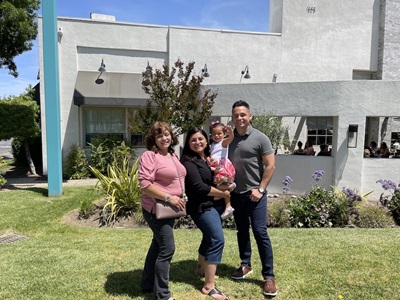
Can you tell me more about your decision to pursue a college education?
My mom was the one that was “book smart” and would help me day in, day out with studies through college. At one point, I think my dad would have wanted me to take over the family appliance repair business, but their joint perspective of building my own legacy balanced them out. They knew that a college education would give me more opportunities.
My parents were candid about their business. We didn’t take family vacations because if we took a week off, that was a week of no money. The only time we would travel somewhere was when I competed in Taekwondo. My dad would say, “Go to school and get a degree so that you can take these vacations and not give up financial freedom.” He saw the bigger picture of the opportunity, and he and my mom wanted to give me those opportunities they didn’t take advantage of. Their work ethic is certainly instilled in me.
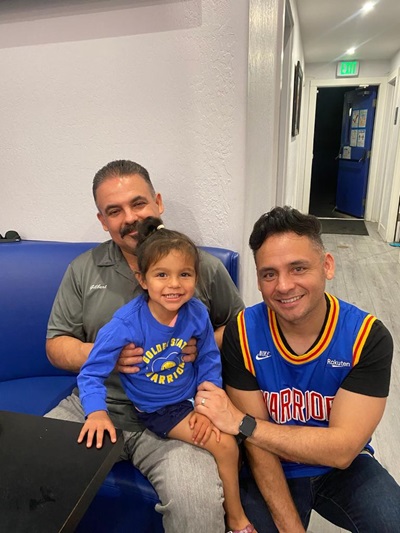
Do you feel that heritage and culture impacted that work ethic? Or your aspirations?
There’s an author, Francisco Jiménez, and one of his books is called Breaking Through. We had to read it as freshmen at Santa Clara University. The story details his emigration to the U.S., journey to Santa Clara, and eventually, career as a professor. Reading that and his struggles reminded me that what I’m doing daily right now isn’t half as hard as what people before me had to go through. It was life or death.
It was, “Am I going to be able to eat or not?” It is inspirational to read stories of people who look like you and have similar backgrounds, and watch them be successful and overcome obstacles. That lends to work ethic and going out there and trying to continue the legacy of what we bring to this country and our impact in cementing that.
On the other hand, why are we considered a “Latin leader” or a “Mexican leader”? I’m simply a leader, and here’s my success. My success isn’t because I’m Mexican American; it’s because I’ve done x, y, z. That said, I recognize the importance of visibility.
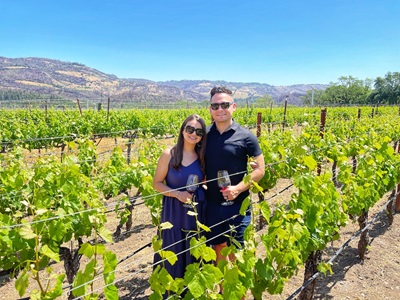
Are there any traditions that are especially important to you?
A standard tradition among most Mexican families is that we make tamales toward the end of the year. We look forward to the process of the family getting together. My grandma immigrated from Mexico, like many, with seven kids. We have this amazing taste for her food, so my mom, sister, and I have tried to keep up with some of the recipes. There are certain foods that every family has at every get-together. My wife is Mexican as well, and there are some traditions that we’ve tried to embrace, like Día de Los Reyes (Three Kings’ Day). We have other friends that are Mexican, and my wife and I are Godparents.
I am a Nino (Godfather), and she is a Nina (Godmother). We look at our Ninos and Ninas like family — an aunt and uncle. This is great because it’s not just about, “Oh, we’re going to help throw you a party and baptism,” it’s about really being there during their ups and downs. We’re there to help them do their homework, guide them spiritually, or celebrate an accomplishment.
Same goes for being an uncle. I don’t have any kids of my own, but family is very important, and we do our best to keep strong ties. Work ethic applies to keeping families close too.
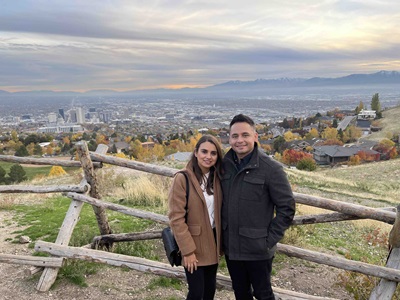
How can Hispanos/Latinos continue celebrating our heritage and maintaining that cultural identity?
The first thing that comes to mind is going back to what the ancient people of our time did. We need to document all these great cultural values, our place in this melting pot of the world, and showcase why we are different and how we add value. The second thing is making marks in history that will never be overlooked. How can we significantly impact the world that it will be in a textbook one day? How can we make something withstand time? Let’s not lose track of what truly makes us unique.
How can GoTo and other companies celebrate heritage and culture while remaining inclusive of everybody?
Opening a forum for challenging conversations means so much to employees. Any company willing to be transparent, even if it might open a can of worms, earns my respect. I have much respect for companies that do that because any organization can go and create a DEI statement posted on their intranet. It’s the challenging conversations that we want to have.
Inclusion and diversity should be a part of everybody, whether you’re a manager, an executive, or an intern. The focus can be on opportunities and enhancing the conversation. Sometimes when you put metrics towards inclusion and diversity, it waters the true meaning. Don’t try to make it a number game; trust that your leaders will get there.
___
We work where we like, which is why we like where we work. We think you will, too. Interested in joining our team? Look at our opportunities.









